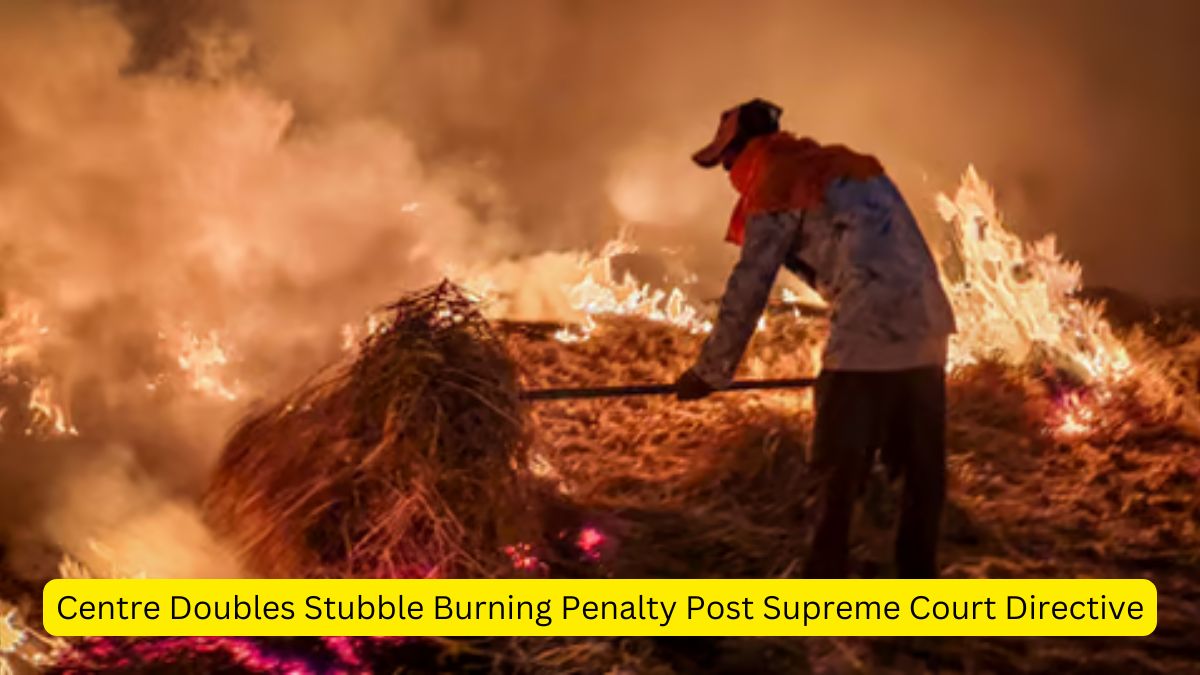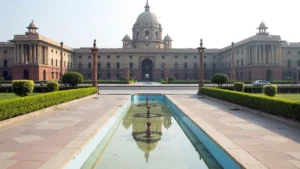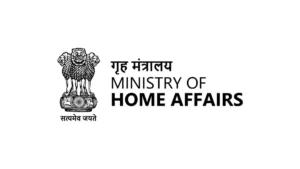In response to the Supreme Court’s criticism of the “toothless” penalties under the Environment Protection Act (EPA) of 1986, the Union Ministry of Environment, Forest, and Climate Change has doubled the fines on stubble burning. This move aims to curb stubble burning and address the worsening air quality in Delhi and nearby regions.
Key Updates and Penalties for Stubble Burning
Revised Penalties
- Farmers with Less Than Two Acres: ₹5,000 fine
- Farmers with 2-5 Acres: ₹10,000 fine
- Farmers with Over 5 Acres: ₹30,000 fine
Implementation
- Penalties enforced through the Commission for Air Quality Management (CAQM) Act of 2021.
- Rules apply to Delhi, Punjab, Haryana, and NCR areas in Rajasthan and Uttar Pradesh.
Collection and Enforcement of Penalties
Environmental Compensation
- Collected via challan, which must be paid within 30 days.
- If unpaid, an authorized officer will recover the amount as an arrear of land revenue.
- Records will show a “red entry” for offenders, marking the land of farmers engaging in stubble burning.
Funds Allocation
- Collected fines deposited into accounts of respective State Pollution Control Boards or Committees.
Objective and Rationale
- Aim: To curb stubble burning and reduce air pollution levels.
- Supreme Court’s Concern: Directed stricter actions and timely penalties to address unchecked environmental violations.
- Environmental Impact: Despite fewer stubble burning cases, air quality worsened, showing a rise in “poor” to “severe” air quality days from 87 to 110 in Delhi.
Statistical Insight into Stubble Burning and Air Quality
Decrease in Stubble Burning Incidents
- Reduced from 71,829 in 2020 to 12,514 between September 16 and November 6, as per the Indian Agricultural Research Institute.
Air Quality Data
- CPCB reported Delhi’s AQI at an average of 367, approaching “severe” levels.
- Neighboring regions like Faridabad, Gurugram, Ghaziabad, and Noida recorded AQIs between 252-313, falling into the “very poor” category.
Sources of Delhi’s Air Pollution
Breakdown of Pollutants (Data from Centre for Science and Environment)
- Local Sources (Delhi): 30.34% of pollution (transportation accounts for 50.1% of this).
- Neighboring NCR Areas: 34.97%.
- Other Areas: 27.94%.
- Stubble Burning Contribution: Only 8.19% to Delhi’s pollution levels.
EPA Penalty Rules, 2024
- MoEFCC introduced new Environment Protection (Manner of Holding Inquiry and Imposition of Penalty) Rules, 2024.
- Guidelines outline factors for penalty assessment based on project type, industry size, and violation nature.
Impact on Delhi and Surrounding NCR Air Quality
AQI Levels on 7th November
- CPCB recorded an average AQI of 367 in Delhi, indicating deteriorating air quality.
- Several Delhi areas exceeded AQI of 400, entering the “severe” category.
| Summary/Static | Details |
| Why in the news? | After Supreme Court rap, Centre doubles penalty for stubble burning |
| Objective | Strengthen penalties for stubble burning to reduce air pollution in Delhi and NCR areas |
| Supreme Court’s Criticism | Criticized the Environment Protection Act (EPA) for “toothless” penalties, urging stricter enforcement within two weeks |
| Revised Penalties | – ₹5,000 for farmers with less than two acres
– ₹10,000 for 2-5 acres – ₹30,000 for more than 5 acres |
| Enforcement Authority | Commission for Air Quality Management (CAQM) Act of 2021 |
| Applicable Areas | Delhi, Punjab, Haryana, NCR areas in Rajasthan and Uttar Pradesh |
| Environmental Compensation Collection | Fines collected via challan; if unpaid within 30 days, collected as land revenue arrears; “red entry” marked in land records for offenders |
| Fund Allocation | Collected fines go to State Pollution Control Boards or Committees |
| Sources of Delhi’s Pollution | – Local sources (30.34%)
– Neighboring NCR areas (34.97%) – Other areas (27.94%) – Stubble burning (8.19%) |
| New EPA Penalty Rules (2024) | Guidelines introduced by MoEFCC for penalty determination based on project type, size, and violation nature |




 Big Change at Rashtrapati Bhavan! Lutyen...
Big Change at Rashtrapati Bhavan! Lutyen...
 India Launches ‘Prahaar’: New National C...
India Launches ‘Prahaar’: New National C...
 Vice-President Launches Tamil & Guja...
Vice-President Launches Tamil & Guja...








